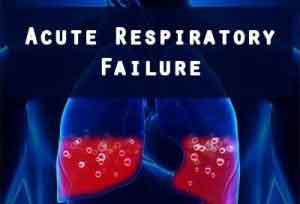- Home
- Editorial
- News
- Practice Guidelines
- Anesthesiology Guidelines
- Cancer Guidelines
- Cardiac Sciences Guidelines
- Critical Care Guidelines
- Dentistry Guidelines
- Dermatology Guidelines
- Diabetes and Endo Guidelines
- Diagnostics Guidelines
- ENT Guidelines
- Featured Practice Guidelines
- Gastroenterology Guidelines
- Geriatrics Guidelines
- Medicine Guidelines
- Nephrology Guidelines
- Neurosciences Guidelines
- Obs and Gynae Guidelines
- Ophthalmology Guidelines
- Orthopaedics Guidelines
- Paediatrics Guidelines
- Psychiatry Guidelines
- Pulmonology Guidelines
- Radiology Guidelines
- Surgery Guidelines
- Urology Guidelines
Angiotensin-II found effective in vasodilatory shock whereas Ganciclovir in respiratory failure

Two recent Northwestern Medicine clinical trials examined the effects of drug therapies for critically ill patients suffering from vasodilatory shock and respiratory failure. Both drugs showed promising results, hopefully leading to further research, according to co-author Richard Wunderink, MD, professor of Medicine in the Division of Pulmonary and Critical Care.
The first study, testing the benefits of angiotensin-II in patients suffering from vasodilatory shock, was published in the New England Journal of Medicine. Patients with vasodilatory shock often have precipitous drops in blood pressure, requiring vasopressor medications to ensure proper blood flow to organs while doctors work to determine and treat the cause of shock.
Norepinephrine is the standard first-line medication to boost blood pressure, but vasopressin, a different medication, works better in some patients because they have low intrinsic vasopressin, according to Wunderink.
“For some of these patients it’s replacing what’s missing,” Wunderink said. “That’s a possibility with angiotensin-II as well.”
Patients in the double-blind trial received either angiotensin-II or a placebo, and the patients on angiotensin-II had significantly greater increases in mean arterial pressure, according to the study. Wunderink said this buys time to perform diagnostic or therapeutic procedures, exemplified by the first patient they entered the trial.
“She was so unstable, we couldn’t get her into the CT scanner for a diagnostic test,” he said. “After administering the study medication, her blood pressure was steady enough to get a CT scan where we found an intra-abdominal access that required drainage and antibiotics.”
Wunderink said that because some major blood pressure-lowering medications operate by blocking angiotensin-II, it was seen as a “bad molecule” and nobody was interested in developing it commercially until now.
More research is still required, Wunderink said, but if the study’s findings are confirmed, it would suggest that future patients in shock could begin treatment with norepinephrine and shift to either vasopressin or angiotensin-II if blood pressure is still too low or they experience negative side effects.
“If we could find biomarkers for increased responsiveness to vasopressin or angiotensin-II, we could tailor treatment to the individual patient,” Wunderink said. “Right now, everybody gets the same regimen.”
Tackling Respiratory Failure
Wunderink also co-authored a recent study published in the Journal of the American Medical Association, investigating the effects of ganciclovir in mediating adverse outcomes in immunosuppressed adults suffering from cytomegalovirus (CMV) infection.
This phase 2 trial examined the outcomes for patients suffering from respiratory failure and using a ventilator to breathe. According to Wunderink, there’s evidence that illnesses severe enough to require a ventilator can suppress patients’ immune systems, leading to the reactivation of common latent viruses such as CMV.
Activation of CMV leads to more negative clinical outcomes, according to a preliminary human study, but animal models have demonstrated the effects of CMV can be mitigated by ganciclovir when administered beforehand. Previous data linked CMV activation with an increase in Interlukin 6 (IL-6), a small protein secreted by T-cells, so scientists used IL-6 levels as the primary endpoint to measure success.
While ganciclovir did not significantly reduce IL-6 levels, significantly fewer patients receiving treatment showed CMV reactivation, and ganciclovir was associated with an increase in ventilator-free days, according to the study.
“We assumed if you lower levels of the biomarker, the patients would do better,” Wunderink said. “We didn’t show a significant difference in IL-6 levels, but the patients were doing much better, leading us to believe we had the wrong primary endpoint in the study.”
The observed clinical effects are likely mediated by pathways other than IL-6, according to the authors. Future analysis could use endpoints including clinical measures of lung function or measurement of CMV-prompted immune response, but it will require additional research, said Wunderink.
“There’s still significant interest in this; it’s just going to require more study and a different endpoint,” he said.
For more details click on the link: DOI: 10.1056/NEJMoa1704154

Disclaimer: This site is primarily intended for healthcare professionals. Any content/information on this website does not replace the advice of medical and/or health professionals and should not be construed as medical/diagnostic advice/endorsement or prescription. Use of this site is subject to our terms of use, privacy policy, advertisement policy. © 2020 Minerva Medical Treatment Pvt Ltd